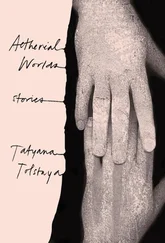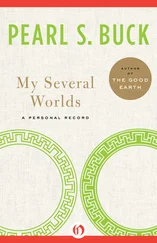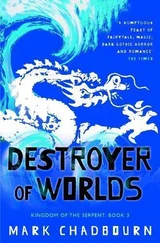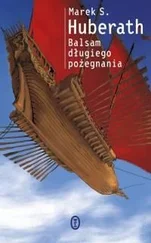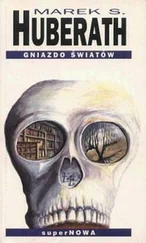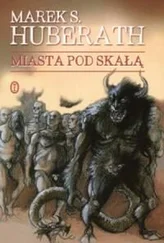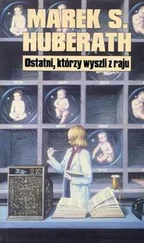He looked in on the divisions where the women worked. More and more he hung around the station of one of them. In her gray uniform and the gray kerchief over her pinned hair, she contained surprising subtleties. It might have been the way she cocked her head as she worked; it might have been because, unlike most of the other women along the belt, she was slender, graceful. In any case, Jaspers’s route went by her station. The girl had a long white neck of delicate, fresh complexion. She was young but seemed serious for her age. He learned her name, of course. Heather pleased him more and more.
He read the book until late at night, or else he set the alarm for four thirty and read at the crack of dawn. The world it presented was so different from the reality of the factory; he was transported. The adventures of the two old women who spent their life traveling without restraints were like a remarkable dream.
Twice he overslept. The guards were tolerant of his tardiness, because he could calculate the factory’s daily production and set the statistical coefficients accurately. Few others could do that.
The rigors of physical labor proved too much for Lepko; he died of a heart attack. Jaspers missed him.
Crooks became quieter, careful. In the barracks he stopped tormenting others. He continued to beat them in the factory, and the victims would return covered with bruises. But Jaspers had deprived him of an evening activity as invigorating to Crooks as going for a walk was to others. For this, Crooks’s hatred of Jaspers was greater than ever.
After two weeks the results of Jaspers’s tests arrived. Early one morning Lasaille took him from the hall, from his reading. In the corridor he clapped him on the back and shook his hand, taking off his leather glove first.
“Congratulations,” he said warmly.
Jaspers swelled with pride, though Lasaille’s hand was too soft.
They went to the commandant himself. Hullic was tiny behind a massive desk of unfinished plywood. At the production roll calls he seemed solid, old; in reality he was short and rather young. In greeting he shook both their hands and gestured to armchairs.
Jaspers thought he would float: here he was talking with the commandant.
“So this is the discovery of the year,” began Hullic playfully, looking Jaspers over with approval. “You did brilliantly, Mr. Jaspers. My congratulations.” That he used “Mr.” meant yet another promotion. “I’m delighted with our new colleague. We’re short of guards… You understand, much is demanded. Few can handle it. You’ll be advanced too for this, Lasaille. Issue him a uniform. Give him the training course. Introduce him around, have him meet the crew.” Hullic made a motion that meant that Lasaille knew what to do, and also that the topic was exhausted and he, Hullic, had things to do, so Jaspers and Lasaille should beat it.
Jaspers was taken to one of the rooms for guards; it accommodated four. Besides him there were Lasaille; the thin, muttering Dub; and Tyang, a garrulous old man who had given Jaspers’s back more than one blow of the stick.
The uniform was fitted. First Jaspers was covered with some kind of silicon grease, then the modeler put foam on him that hardened on exposure to air. The modeler shaped it, giving it big muscles and broad shoulders. He took elastic cushions and sewed them to the uniform to create the impression of normal proportions.
When Jaspers put on this uniform, he looked like a weightlifter, a copy of Crooks. They covered his face with a meshed, transparent mask to mold the features.
During duty the guards were not allowed even to unbutton their uniforms. Here was the reason they all seemed so strong, the reason their rigid, determined faces inspired respect. This alteration of form was indispensable for ensuring obedience among the workers. Lest a new guard be accidentally recognized by his former colleagues, he was stationed in a distant division of the factory.
Jaspers took the three-month training course. The class was run by a tall, gloomy guard named Koleh. There were three other people in it: two older, heavy women—Gabbie and Josa—and Porz, a slight and pale individual. The content of the lectures amazed Jaspers, as he had been amazed, at the beginning, by the method of selecting guards. They were shown how to drill and how to wear their uniform. A few hours a day of practice in front of the mirror: some movements were permitted, some not—for one’s safety. The cushions under the uniform had to look like muscles, not like dummy padding. A guard must in no way reveal that his body differed from that of a common worker, that he was not far superior physically to a common worker. Even in the event of a direct attack, a guard must not permit himself to be exposed. For this purpose a thin microphone was glued into the mask. Immediately a group of strongmen like Crooks would come to the rescue. So far no guard had been attacked, even though they were few in number and had been chosen for their mental, not physical, abilities.
When Jaspers had mastered the art of wearing his uniform and moving correctly, instruction began on how to oversee the workers. In this course the students became acquainted with the organization of the factory divisions where they would be stationed. They were told which workers would grow tired (or bored) and at which hours. Everything had been noted meticulously by the guard scientists. An enormous body of information had been gathered, but the high command rewarded an individual for making additional, well-documented observations—gave him one or sometimes even two days of leave, which could be spent in the reading room.
Then began the lessons in intimidation. The students were taught to speak in a way that inspired dread, to shout in a way that never failed to impose one’s will. Then came instruction in striking with the hand, with the stick. The blow—always a single blow, no more—had to create the impression that the one who struck possessed tremendous strength. The pain of it should be sharp, intense, but of short duration. The blow should cause no permanent harm; its purpose was to spur the worker to greater productivity, not incapacitate him.
Jaspers opened the book less frequently and with less interest. In comparison with the great responsibilities awaiting him, the fate of the two old women and their lame cat seemed unimportant. Their lifestyle he now considered a kind of social desertion. The world they lived in was falling apart, and increasingly people were shirking their duties. The cities, moreover, were not safe, since the wind spread poisonous clouds from the ruins of the chemical factories that could destroy all life in Zatr.
Jaspers believed that the disintegration of institutions and the closing of the factories had been caused by the lack of professional, conscientious people, the kind who kept society going. The path taken by that world was leading it to destruction. To postpone the inevitable end, he put aside the book. Because he no longer read it, Ozza and Hobeth did not die.
He stopped seeing Heather. One factor in this decision was the consideration that, by choosing her, he would no longer be able to avail himself of the list of unattached women workers of the factory. Against that great number of possibilities, her charms waned. Using Lasaille’s strategy, for example, he could have a woman who would be leaving Taayh soon. Since a union was annulled immediately by a departure, he could look for another to replace her.
The night before the first time he was to serve as a guard in a production hall, he had difficulty sleeping. For half the night he tossed and turned, until Dub—who was known for uttering no more than 250 words in the course of a week, including bids during bridge games—said something.
Читать дальше

